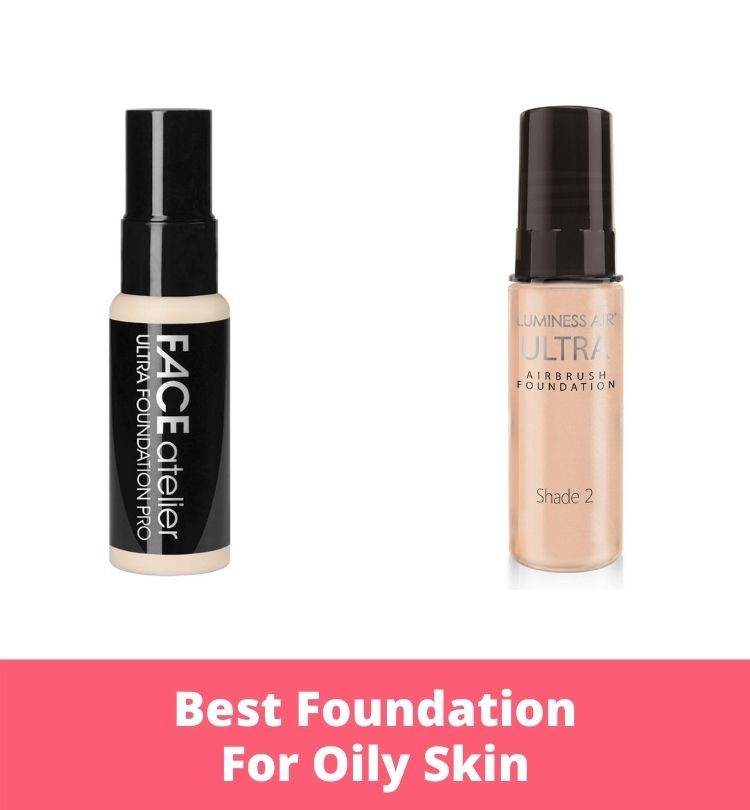This post contains affiliate links.
Updated on February 24, 2025
Yes, hyaluronic acid is good for oily skin. It hydrates without clogging pores or causing excess oil production.
Hyaluronic acid is a powerful hydrating ingredient suitable for all skin types, including oily skin. It attracts and retains moisture, helping to balance the skin’s hydration levels. Oily skin often suffers from dehydration, leading to increased oil production. By using hyaluronic acid, you can effectively hydrate your skin without adding extra oil.
This helps reduce the appearance of fine lines and maintain a healthy skin barrier. To maximize benefits, incorporate hyaluronic acid into your daily skincare routine. Choose lightweight, non-comedogenic formulas to prevent clogged pores and breakouts. This ensures your skin remains hydrated, balanced, and healthy.
Contents
- Introduction To Hyaluronic Acid
- Benefits For Oily Skin
- Best Practices For Application
- Potential Side Effects
- Recommended Products
- Frequently Asked Questions
- Is Hyaluronic Acid Beneficial For Oily Skin?
- What Skin Type Should Not Use Hyaluronic Acid?
- Which Is Better For Oily Skin, Hyaluronic Acid Or Salicylic Acid?
- Which Is Better For Oily Skin, Hyaluronic Acid Or Niacinamide?
- What Are The Benefits Of Hyaluronic Acid For Oily Skin?
- Can Hyaluronic Acid Reduce Oily Skin?
- Conclusion
Introduction To Hyaluronic Acid
Hyaluronic Acid (HA) is a popular ingredient in skincare. It is known for its hydrating properties. Many wonder if it suits oily skin. This blog explores its benefits and best practices.
What It Is
Hyaluronic Acid is a natural substance. It is found in our skin. It holds moisture and keeps skin hydrated. It also helps with skin elasticity. You can find it in many skincare products. These include serums, creams, and masks.
Common Uses
Hyaluronic Acid has many uses in skincare. Here are some common uses:
- Hydrating the skin
- Reducing fine lines
- Improving skin texture
- Boosting skin elasticity
People with oily skin often worry about hydration. Hyaluronic Acid can help. It provides moisture without making the skin greasy. This can balance oil production and keep the skin healthy.
| Benefit | Description |
|---|---|
| Hydration | Locks in moisture |
| Anti-Aging | Reduces fine lines |
| Texture Improvement | Smooths skin surface |
| Elasticity | Boosts skin firmness |
Using Hyaluronic Acid correctly can benefit oily skin. It hydrates without clogging pores. This makes it a great addition to any skincare routine.
Read More – How to Know If You Have Oily Or Dry Skin: Top Signs And Symptoms to Look For
Benefits For Oily Skin
Hyaluronic acid is often linked with hydration. But is it good for oily skin? The answer is yes. This powerful ingredient offers several benefits. It helps manage oil production and keeps skin balanced. Let’s explore these benefits.
Hydration Without Greasiness
Oily skin still needs hydration. Hyaluronic acid provides moisture without making skin greasy. It helps retain water in the skin. This keeps the skin hydrated and fresh. Hyaluronic acid is lightweight. It absorbs quickly and does not clog pores. This makes it ideal for oily skin types.
Balancing Oil Production
Hyaluronic acid helps balance oil production. When skin is hydrated, it produces less oil. This reduces shine and greasiness. It can also prevent acne breakouts. By balancing moisture levels, it keeps the skin healthy. This makes it a perfect fit for oily skin types.
| Benefits | Description |
|---|---|
| Hydration | Keeps skin moisturized without oiliness |
| Oil Control | Balances oil production and reduces shine |
| Acne Prevention | Helps prevent breakouts by balancing skin |
- Hyaluronic acid is lightweight.
- It absorbs quickly.
- It does not clog pores.
Try adding hyaluronic acid to your skincare routine. Your oily skin will thank you.
Best Practices For Application
Hyaluronic Acid (HA) is a popular ingredient for skin care. Oily skin can benefit from it when applied correctly. Let’s explore the best practices for using HA on oily skin.
Choosing The Right Product
Choosing the right hyaluronic acid product is crucial. Look for oil-free and non-comedogenic labels. These products will not clog your pores. Gel-based formulations are excellent for oily skin. They provide hydration without adding extra oil. Here are some key points to consider:
- Low Molecular Weight HA: Penetrates deeper layers of the skin.
- High Molecular Weight HA: Hydrates the surface of the skin.
- Combination Formulas: Offer multi-layer hydration benefits.
Application Tips
Applying hyaluronic acid correctly maximizes its benefits. Follow these steps for best results:
- Cleanse: Start with a gentle cleanser to remove impurities.
- Apply HA: Use a small amount on damp skin.
- Massage Gently: Spread evenly across the face and neck.
- Seal with Moisturizer: Lock in moisture with an oil-free moisturizer.
- Sun Protection: Use sunscreen during the day to protect your skin.
By following these practices, you can enjoy the benefits of hyaluronic acid. Your oily skin will feel hydrated and balanced.
Read More – The 10 Best Cellulite Massagers
Potential Side Effects
Hyaluronic acid is popular for its moisturizing benefits. But, it can have side effects. Knowing the potential risks helps you use it safely.
Possible Reactions
Some people may experience skin irritation from hyaluronic acid. This includes redness, itching, and swelling. These reactions are rare but possible.
Another potential side effect is breakouts. This can occur if the product is too heavy for oily skin. Not all hyaluronic acid products cause this. Choose the right formulation.
How To Mitigate Risks
Follow these steps to reduce risks:
- Patch test before full use. Apply a small amount on your wrist.
- Wait 24 hours to see if there’s a reaction.
- Use a product suitable for oily skin. Look for lightweight, non-comedogenic options.
- Start with a lower concentration. Gradually increase as your skin adjusts.
- Consult a dermatologist if unsure. Professional advice is always best.
Consider these factors when choosing a product:
- Ingredients: Avoid products with added fragrances or alcohol.
- Formulation: Gel-based products are better for oily skin.
By taking these steps, you can enjoy the benefits of hyaluronic acid. Keep your skin healthy and radiant.
Read More – Top 10 Best Sisley Skincare Products
Recommended Products
Finding the right hyaluronic acid product for oily skin can be tricky. Not all products suit oily skin types. Here are some top picks that work wonders for oily skin. These products help maintain moisture without adding extra oil.
Top Picks
| Product | Benefits |
|---|---|
| The Ordinary Hyaluronic Acid 2% + B5 | Oil-free absorbs quickly, keeps skin hydrated |
| Lightweight serum reduces oiliness, hydrates deeply | Non-comedogenic improves skin texture, soothes irritation |
| La Roche-Posay Hyalu B5 Serum | Non-comedogenic, improves skin texture, soothes irritation |
User Reviews
- “My skin feels less oily and more balanced.”
- “This serum absorbs quickly and doesn’t leave a sticky residue.”
- “A little goes a long way and is very affordable.”
- “My skin feels fresh and hydrated without extra shine.”
- “Perfect for daily use, especially in humid weather.”
- “It’s lightweight and doesn’t clog my pores.”
- “My skin texture has improved significantly.”
- “It calms my skin and reduces redness.”
- “Great for sensitive, oily skin.”
Frequently Asked Questions
Is Hyaluronic Acid Beneficial For Oily Skin?
Yes, hyaluronic acid benefits oily skin. It hydrates without clogging pores, balances oil production, and reduces acne.
What Skin Type Should Not Use Hyaluronic Acid?
Oily or acne-prone skin types should use hyaluronic acid cautiously. It may sometimes cause breakouts or clogged pores. Always test a small area first.
Which Is Better For Oily Skin, Hyaluronic Acid Or Salicylic Acid?
Salicylic acid is better for oily skin. It penetrates pores, removes excess oil, and prevents acne. Hyaluronic acid hydrates but doesn’t reduce oil.
Which Is Better For Oily Skin, Hyaluronic Acid Or Niacinamide?
Niacinamide is better for oily skin. It regulates oil production, minimizes pores, and reduces inflammation. Hyaluronic acid hydrates but doesn’t control oil.
What Are The Benefits Of Hyaluronic Acid For Oily Skin?
Hyaluronic acid hydrates without clogging pores. It helps balance oil production and leaves skin feeling refreshed.
Can Hyaluronic Acid Reduce Oily Skin?
Yes, it helps regulate oil production. This reduces the greasy feeling and appearance.
Conclusion
Hyaluronic acid is excellent for oily skin. It hydrates without causing breakouts. Use it regularly for best results. Choose products formulated for oily skin. Always patch-test new products. Enjoy a balanced, hydrated complexion.




